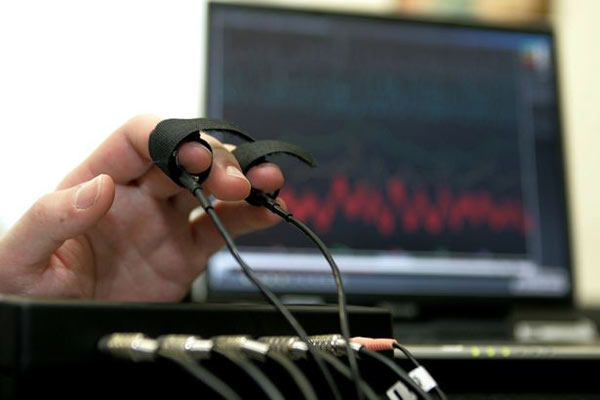當前位置: Language Tips> 雙語新聞
The four ways to tell if someone is lying to you - without resorting to a polygraph test
分享到
If you suspect someone isn't being totally honest, listen carefully to what they're saying and how - you might spot one of these four signs.?
如果你懷疑某人并沒有完全在說實話,請小心留意其說話內容和方式——你可能會發現以下四種跡象之一。
 |
| If you suspect someone is lying about something, try to look for these signs |
What was the last lie you told? If your answer is along the lines of 'so long ago, I can't remember', that's most likely a big fib - because we lie up to 200 times a day!
你上一次說了什么謊?如果你的回答是類似“太久啦,我不記得了”,這可能就是個謊言——因為我們每天說謊最多可達200次!
This isn't to say you're a shady Machiavellian character. Often the lies we tell are along the lines of "I'm fine" when someone asks how you are.
這并不是說你是個陰暗的不擇手段的人物。很多時候我們說的謊是類似有人問你過得怎么樣,你回答“挺好的”這種。
Our motivation isn't necessarily to deceive or cover up our tracks. According to Lifehacker , we lie predominantly because "we want to connect ourselves to who we think we should be."
我們的動機并不一定是欺騙或掩蓋自己的行為。根據生活類科技博客“生活駭客”(Lifehacker)的說法,我們說謊主要因為“想把真實的自己和我們認為應當成為的自己聯系起來”。
But if we're churning out the lies, it means others are too. And while some are innocuous and will have no impact on our life, there's a chance some will.
但如果我們自己大量撒謊,就表示別人也在這么做。且盡管有些謊言無傷大雅,對生活也毫無影響,有些卻不然。
Short of forcing someone to take a polygraph test, there are four indicators.
雖然不能強制別人做測謊測試,但有四種說謊跡象。
So, how to spot a liar?
那么,怎樣辨別說謊者呢?
1. Third person
1. 第三人稱
 |
| You can't always have a polygraph machine to hand |
Someone who's lying will try to keep the self-references to a bare minimum.
說謊者會試圖將自我指涉減到最低。
They use the third-person as a means of distancing themselves from the deception.
他們運用第三人稱,使自己看起來沒有在欺騙別人。
So, for example, instead of saying "I didn't do it" they might say "that didn't happen".
比如他們可能說“那并沒有發生”,而不是“我沒有做那件事”。
2. Being negative
2. 消極表述

Listen out for the sort of language someone you suspect is lying is using.
仔細聽你懷疑在說謊的人使用的語言類型。
If they're using negative language, that's a good indicator as liars express a lot of negativity because they subconsciously feel bad about lying.
如果他們在使用消極的語言,就是很好的暗示。說謊者常用許多消極表達,因為潛意識里他們對撒謊行為感到慚愧。
3. Keeping it simple
3. 簡單化表述
Because it's difficult for liars to come up with a complex story on the spot, they often offer simplified stories, with no nuance.
因為對說謊者而言,現場編出復雜故事挺困難的,他們會經常講些缺乏細節的簡單化故事。
Watch out for generalised and over-simplified terms explanations.
請留意概括的、過分簡單的解釋說明。
4. Overly-complex phrasing
4. 過分復雜的措辭
But, somewhat confusingly, although their stories, excuses and explanations are simple, the phrases they use tend to waffle and go on a bit.
然而,有些令人不解的是,盡管說謊者的故事、借口或解釋很簡單,他們使用的措辭卻往往含混又有些冗長。
Keep and ear out for complex and disjointed sentences with unnecessary detail - it's a good sign they're telling porkies.
請密切注意復雜、雜亂又帶有不必要細節的句子——這是他們在說謊的跡象。
Vocabulary
along the lines of: 類似
disjointed: 雜亂的
英文來源:每日鏡報
翻譯:實習生徐曉彤
編審:yaning
上一篇 : 勤刷手機拇指會變大
下一篇 : 檸檬七大妙用你知道嗎?
分享到
關注和訂閱


電話:8610-84883645
傳真:8610-84883500
Email: languagetips@chinadaily.com.cn